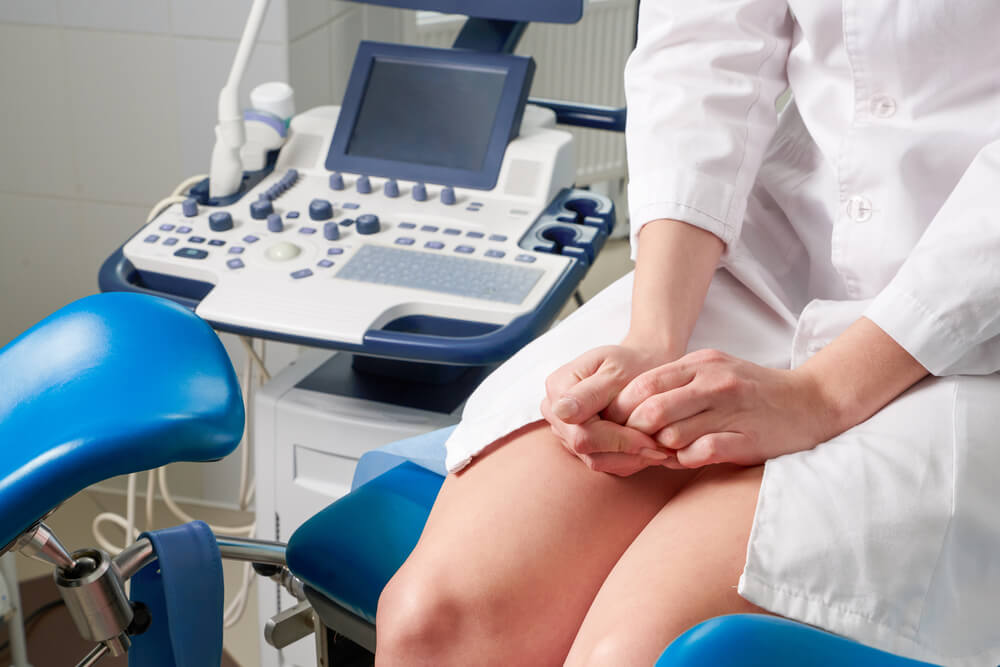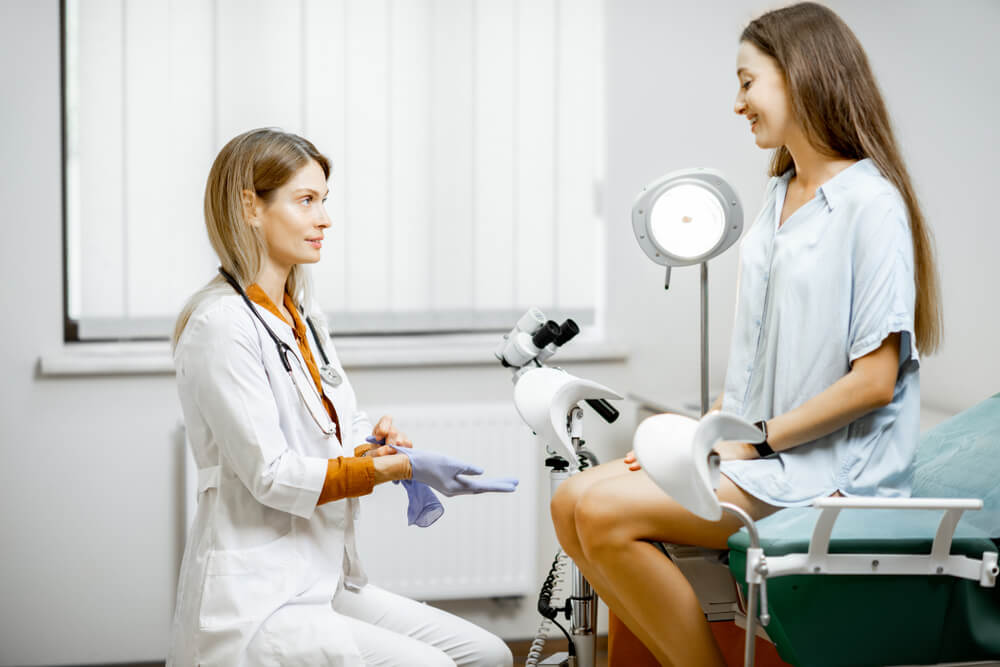Before their first OBGYN appointment, most girls and women feel nervous and anxious which is quite normal. You do not know what to expect during the first appointment, and there is discomfort and fear of the unknown. Whether you want to find out for yourself what awaits you at the appointment or you are a parent who wants to prepare your daughter and yourself for this moment, we provide answers to all these questions.
Also, there are many excellent professional gynecological services in Miami, and there is no reason to worry because you will receive good advice and treatment.
When Is the Right Time for the First Gynecology Appointment?
We recommend that you make your first visit to a gynecologist between 13 and 17.
The earlier in life you go to the gynecologist, the sooner it will become second nature. It will become natural for you to turn to your doctor for advice and do annual exams without pressure and nervousness.
Many women think that they should visit a gynecologist for the first time when they become sexually active or have some health problems. They often delay a visit out of fear or discomfort. No need to worry! The gynecologist will answer all your questions. They will be completely discreet, confidential and will explain everything.

How to Prepare for the First Visit to the Gynecologist?
It is perfectly normal to feel uncomfortable and worried, and it’s okay to share your concerns with your doctor.
Before you go for your appointment with a gynecologist, consult and seek support from a friend, parent, or partner.
You need to know exactly when your menstrual period started and when it ended, as well as how it went because it is important to your doctor. That is why it is good to mark the first day of the menstrual cycle in the calendar and keep records of it always.
Also, it would be best to make a list of questions for your gynecologist before the first examination:
- What tests await me?
- Is the examination painful?
- How often should tests be repeated?
- What is a pap smear, and will I have it?
- What is the annual exam?
It is necessary to tell the doctor if there are irregular menstrual cycles, and your gynecologist will know what kind of test do you need.
Many girls and women worry about whether they should shave “down there” before an appointment with a gynecologist. Your health is important to your gynecologist, and whether or not to shave is a matter of personal choice. Pubic hair is not a problem during examinations and tests.
However, some things should be avoided a day or two before any gynecological examination, as they can change the vaginal flora and the outcome and result of gynecological tests.
Make sure to ask your expert beforehand about the use of tampons, shampoos, creams, and even intercourse before your first appointment.
Who Is a Gynecologist?
An obstetrician-gynecologist or OBGYN is a doctor who specializes and trains in the field of women’s health. They are the doctors who check your gynecological health and also your general health.
They will do everything to make the first meeting easier and more pleasant and will dedicate themself to you professionally, responsibly, and with understanding. So, if you’re in the Miami area, you can always contact us at Doral Beach Gynecology and ask us anything that interests and worries you before your first gynecology appointment. We will do our best to guide you, help you and eliminate any doubts.
What Does a Gynecologist Do on Your First Appointment?
When you visit your gynecologist for the first time, you might just end up talking. The gynecologist will explain to you what your examinations will look like in the future and will schedule your next appointment. Based on the interview, the doctor will assess whether it may be necessary to perform examinations and tests immediately or if he will do that at one of the next appointments.
- Don’t feel uncomfortable if they ask you questions:
- About your family
- About medical history
- About your menstrual period (do you have irregular periods, do you have period cramps, do you have heavy and unusual bleeding, etc.
- Whether you are sexually active and what sexual activities you practice
- Whether you use condoms or other types of birth control if you are sexually active
Confidentiality comes first, so there’s no reason to worry.
If you are a teenager and do not feel comfortable talking about all this in front of your parents, the doctor will ask them to leave during this part of the conversation. Of course, the gynecologist will encourage you to take care of your mental health and to consult with people you trust, and most often, they will be your parents.
What Kind of Test Does a Gynecologist Do?
You’re probably wondering: What kind of test does a gynecologist do?
We will guide you through the types of tests and show you that they are harmless. These examinations serve to improve your health, and your doctor will do everything to ease your discomfort.
At the first appointment, the gynecologist will usually perform these tests:
- General physical exam
- External genital exam
However, if you have problems, pain, irregular menstrual cycle, unusual bleeding, itching, altered vaginal secretions, etc., the doctor will also perform a pelvic exam and pap test.
All these examinations are part of the annual exam, but your gynecologist may also perform a breast examination, which is very important for your health.
General Physical Exam
The general physical exam includes checking your height and weight, blood pressure, and heart rate, and if necessary, the doctor will have you do a blood test.
The conversation with the gynecologist we talked about is part of this exam. If you are sexually active and suspect a sexually transmitted infection or disease, your gynecologist will also perform tests for certain STIs.
You should not feel uncomfortable talking about sex with your gynecologist. It is their job to talk to women about it and to point out the importance of sexual health. Therefore, be free to answer questions and ask anything that interests you. You are in the right place.
If you do not want to be alone during the tests, you can always be accompanied by a parent or nurse as support.
External Genital Exam
During this test, the gynecologist will examine your vulva. This is the outer part of your genitals, the area around your vagina, and a gynecologist will look at it.
It is also possible that the gynecologist will do the bimanual exam: two lubricated fingers will be placed in your vagina while the other hand will be held on your abdomen. This is how the doctor will check your uterus and ovaries and whether there are any cysts.
This exam does not hurt, but it can be uncomfortable for the first time. Rest assured, your gynecologist will do everything to ease your discomfort.
Pelvic Exam
At the first gynecological examination, you will probably not have a pelvic exam, but it is necessary if you have some gynecological disorders (itching, heavy period, pain). However, it is part of the annual exam with the pap test.
The first part of the pelvic exam is the external genital exam, and then the gynecologist observes the vagina and cervix, as well as other internal organs. Of course, your gynecologist has gloves on all the time.

What Is a Pap Smear?
A Pap smear is usually not performed before the age of 21 unless necessary.
What does it look like? The doctor puts a speculum in your vagina to see the cervix, and with a small brush and spatula, takes a sample of cervical cells for analysis under a microscope.
Although it is not pleasant, it is not painful, but you should tell your doctor if you feel anything that bothers you.
Sexually active women will usually have a pap smear performed during their annual exams. You must have a pap smear with colposcopy because this is the best way to examine the condition of the vagina. The results of the pap test help both doctors and women to detect harmless infections, but also serious diseases such as cancer in time.
Bottom Line
You should not be afraid of your first gynecological appointment. Your gynecologist is there for you and is open to all your questions. If you already have some concerns, you should not be discouraged from the examination. If you go to the gynecologist preventively, do not be afraid because this is the best way you take care of your reproductive health. Your gynecologist will explain and guide you through each annual test and will be there for you and take care not only of your gynecological but also of your general health.
And if you have any more questions feel free to contact us at Doral Beach Gynecology as we are here for all your concerns.


